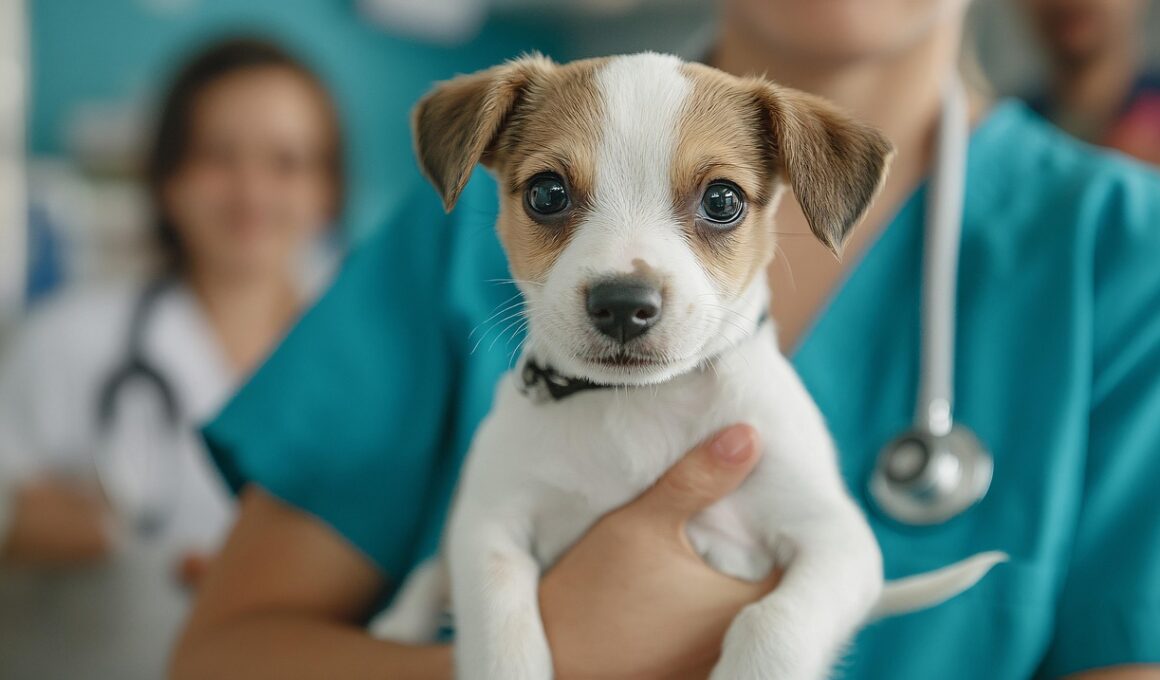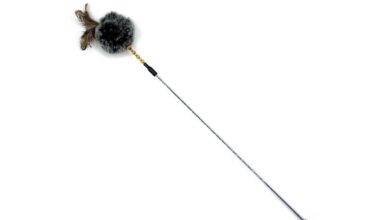Understanding Puppy Vaccination Schedules: A Comprehensive Guide
Vaccinating your puppy is crucial for ensuring optimal health and well-being. Vaccines protect puppies from various infectious diseases, some of which can be life-threatening. The vaccination schedule typically begins when your puppy is around six to eight weeks old, and it’s vital for owners to adhere to these timelines. Additionally, rumors abound about alternative vaccination methods; however, traditional and proven vaccination schedules remain the most effective. It is essential that all pet owners understand and follow these guidelines, which may be available through your local veterinarian or pet health resource. You can also refer to reputable sources such as the American Veterinary Medical Association (AVMA) or the American Kennel Club (AKC) for detailed information. Maintaining a record of vaccination history is also highly advisable, as this can prove invaluable should a health issue arise. Many veterinarians provide vaccination reminder services, which can help ensure that all shots are administered on time. In summary, understanding puppy vaccination schedules is an important responsibility of pet ownership that merits close attention for the health of your dog.
The Core Vaccinations
Puppies typically need a series of core vaccinations to protect them against severe diseases. Core vaccines include Distemper, Parvovirus, and Adenovirus. These vaccinations are essential and are usually administered in combination shots to reduce the number of injections required. The first round of vaccinations often occurs at six to eight weeks, followed by booster shots every three to four weeks until about sixteen weeks of age. By this time, your puppy should have received the complete core vaccine series, depending on your veterinarian’s recommendations. It’s crucial for pet parents to stay informed about any possible adverse reactions from vaccines. Monitoring your puppy post-vaccination is an essential part of keeping track of their well-being. Vaccination records should be maintained meticulously to ensure coverage complies with local regulations. Failure to vaccinate can expose your puppy to infectious diseases prevalent in your region and beyond. Therefore, consulting with your vet during this critical phase can provide guidance tailored to your puppy’s specific needs, taking into consideration their breed, age, and overall health.
Non-core vaccinations are also an important consideration for specific environments. These vaccines include Bordetella (kennel cough), Leptospirosis, and Lyme disease, among others. Not all dogs require non-core vaccines; rather, their necessity depends on lifestyle, geographical location, and potential exposure risks. For example, if you frequently visit dog parks or boarding facilities, vaccination against kennel cough may be advisable. Consult with your veterinarian to create a customized vaccination plan that considers your specific circumstances. Additionally, certain areas may have higher occurrences of specific diseases, such as Lyme disease in regions with many ticks. Keeping your dog up-to-date on not only core vaccinations but also non-core options will enhance your pet’s overall health. Non-core vaccines may be administered concurrently with core vaccinations during scheduled visits, ensuring an efficient approach. Being proactive about vaccinations can prevent future health complications and costs resulting from contagious diseases. Always discuss plans for non-core vaccinations with professionals who can provide insight based on evidence and research. Armed with knowledge, you can make informed decisions about your puppy’s vaccination regimen.
Vaccination and Socialization
Socializing your puppy safely during their vaccination period is a common concern for many new pet parents. Proper socialization is vital for a well-adjusted dog, but it’s essential to balance this with your puppy’s vaccination status. Before your puppy has completed their core vaccinations, avoid exposing them to unvaccinated dogs and environments where lots of dogs gather, as this poses health risks. Instead, consider controlled environments such as your home or gardens where you can host vaccinated canine friends. Puppy classes that require proof of vaccinations are excellent ways to socialize your pet while keeping them safe. Many dog training schools have strict vaccination requirements for that very reason. Placing focus on positive social experiences will help your dog thrive and feel comfortable around people and other pets. Handlers should age their interactions based on vaccination status while remaining cautious. The goal is to create a positive foundation for future experiences without compromising your puppy’s health. As they grow, they will become more resilient to infections, allowing for more interaction with the outside world.
After vaccinations, it’s important to monitor your puppy for possible side effects. Most puppies tolerate vaccinations well, but some may exhibit mild side effects such as lethargy or slight fever. Understanding the signs of a reaction can help gauge their health. In rare cases, more serious reactions can occur, such as difficulty breathing or swelling. If you observe any alarming symptoms, consult with your veterinarian immediately. They will provide guidance on how to handle potential reactions and when to seek further assistance. Keeping notes on your puppy’s vaccination timeline can also aid your vet in determining any correlations between shots and reactions. Many pet owners find it beneficial to report any adverse events to their vet to contribute to a broader understanding. Vaccination reactions are generally mild and temporary but being prepared can mitigate stress. Incorporating regular wellness checks with your vet will ensure that your puppy continues to grow healthy. Always follow your veterinarian’s advice to maintain optimal care during this vulnerable period. Observing your puppy closely allows you to catch any problematic reactions early.
Importance of Maintaining Vaccination Records
Keeping clear and organized vaccination records is an essential component of responsible pet ownership. Your puppy’s health history is vital not just for future vaccinations but also for any medical treatment they might need in the future. Many services, including boarding facilities and groomers, may require proof of vaccinations to ensure the safety of all animals involved. Organizing vaccination records can eliminate confusion and provide peace of mind during vet visits. Utilize spreadsheets or dedicated apps designed for pet care to keep track of vaccinations, appointments, and any medications. Most veterinary clinics also offer assistance in managing these documents. Having easy access to this information can significantly reduce stress during visits. Moreover, a well-maintained vaccination record can serve as essential documentation when traveling. Some regions may have strict health regulations regarding pet imports, requiring proof of vaccinations. Understanding and addressing these requirements ahead of time ensures compliance and smooth transitions. Being proactive about documentation reflects not only careful ownership but a commitment to your pet’s health and community safety.
Finally, consider potential lifestyle changes that could affect vaccination schedules as your puppy matures. Life events such as moving, changes in weather, or a new pet sibling can shift your dog’s exposure risks. It’s crucial to revisit vaccination needs monthly or biannually as your dog grows, ensuring they remain in good health and protected from contagious diseases. Events like boarding, daycare, and travel can necessitate additional vaccinations throughout your dog’s life. Always maintain an open line of communication with your veterinarian, who can guide you through these necessary adjustments based on current health and lifestyle factors. Health changes can occur over time, affecting which vaccinations may be required. By staying proactive and informed, you can adapt your puppy’s vaccination schedule appropriately as they transition into adulthood. Making adjustments according to changing life circumstances will significantly contribute to a happier and healthier pet. Embrace the journey of responsible pet ownership by staying informed about your puppy’s health and needs, ensuring that your furry friend leads a vibrant life.
Conclusion
In conclusion, understanding puppy vaccination schedules is a fundamental aspect of responsible dog ownership. The journey begins at an early age, with core vaccinations setting the foundation for your puppy’s health. It is equally important to consider non-core vaccinations depending on your pet’s lifestyle and environment. Socialization must also be balanced with their health needs during the vaccination phase. The monitoring of any reactions post-vaccination helps further ensure a solid foundation for their growth. Keeping organized vaccination records simplifies ongoing care and proves indispensable during travel or visits to facilities. Regular communication with your vet ensures that your puppy’s health plan remains optimal as they grow. Each puppy is unique, requiring tailored advice to navigate their health journey effectively. This attention to detail in their health care reflects the love and responsibility required in pet ownership. By keeping these factors in mind, you contribute to a healthier happier pet. Investing time in understanding vaccination schedules not only protects your puppy but also enhances their quality of life. Your commitment to their health ultimately lays the groundwork for a lifelong bond filled with joy and companionship.


